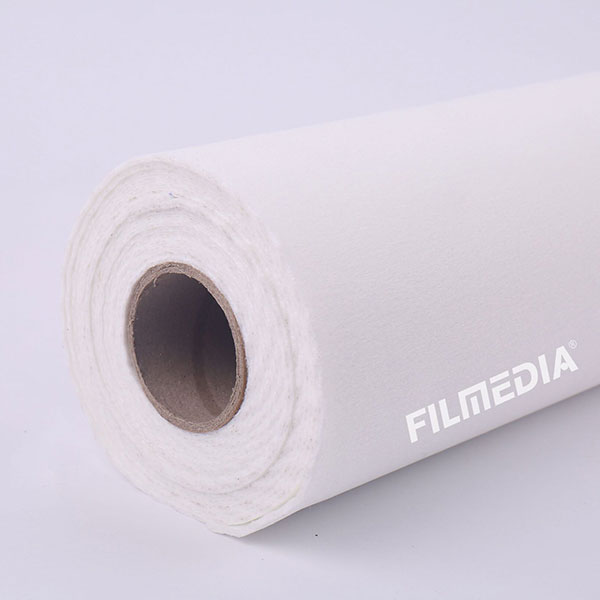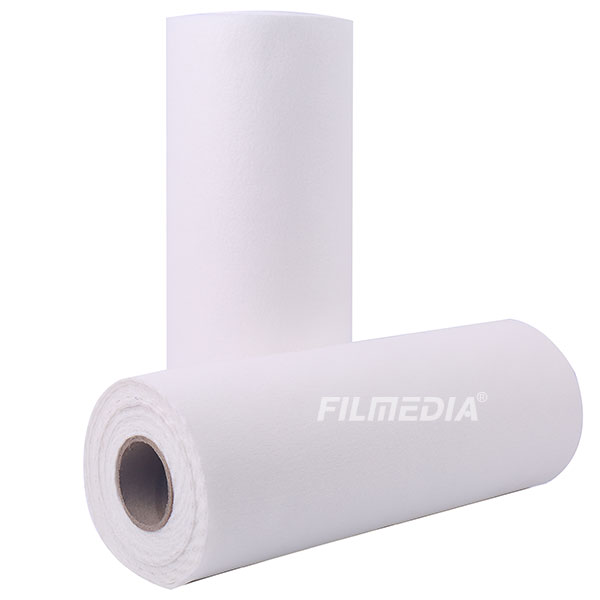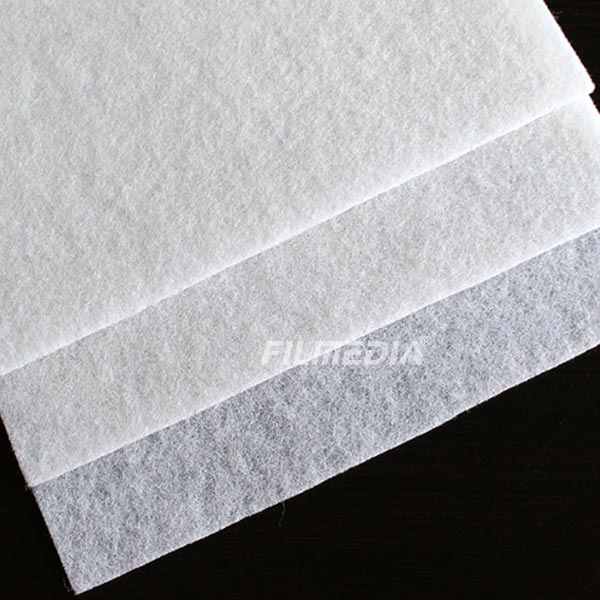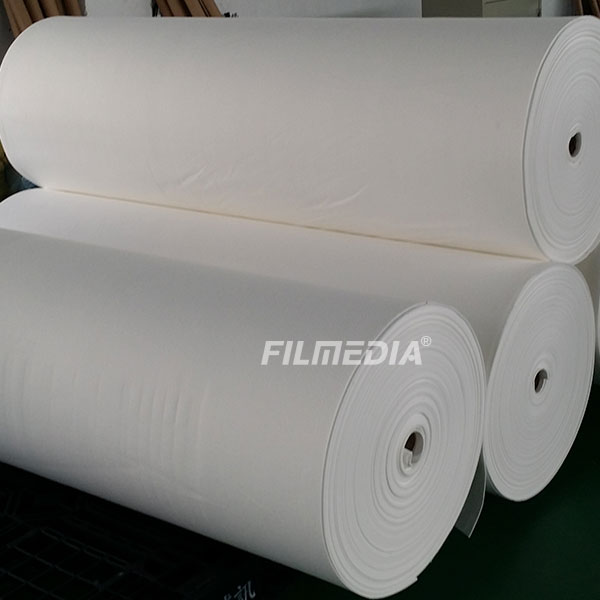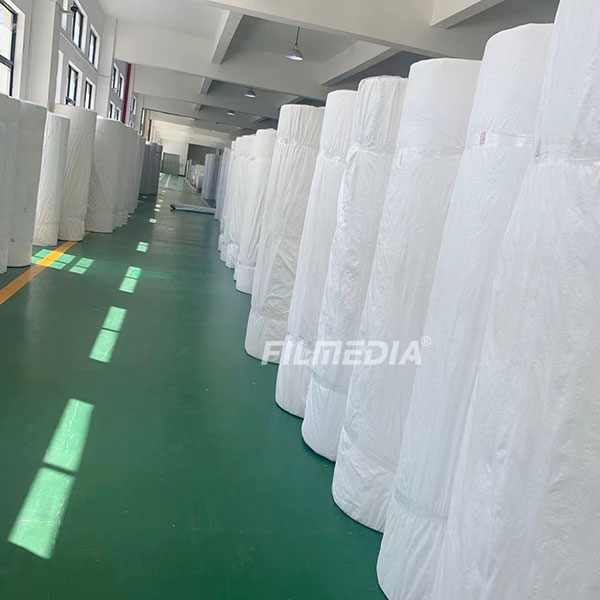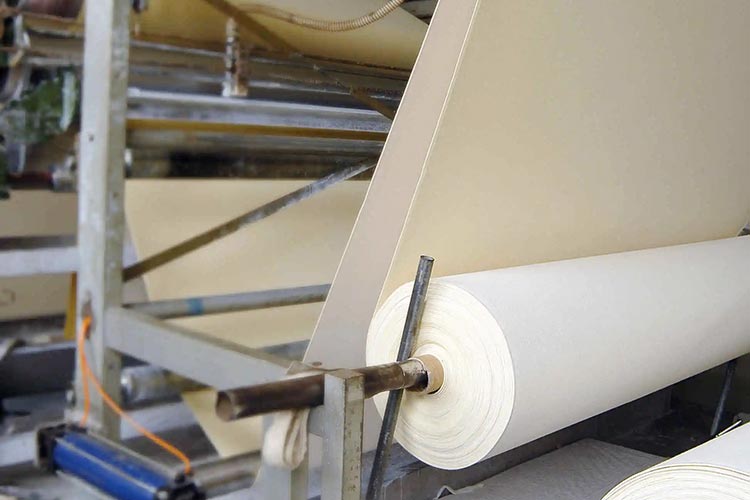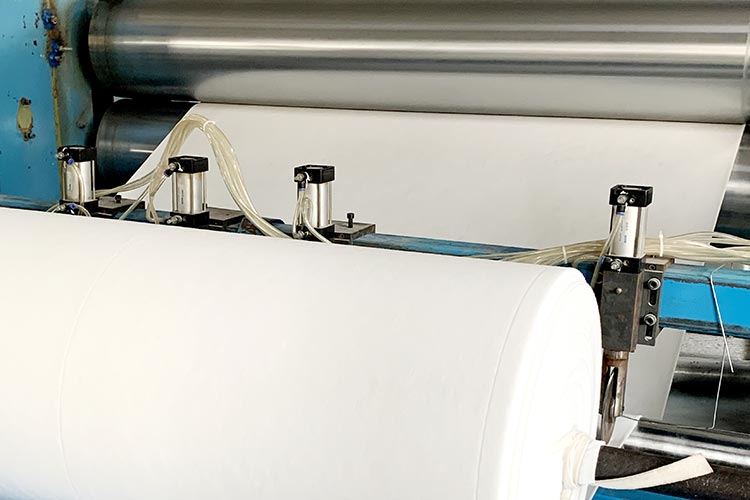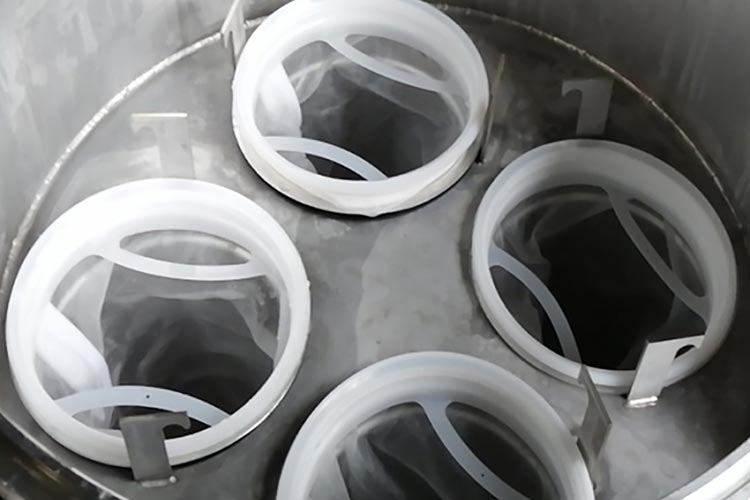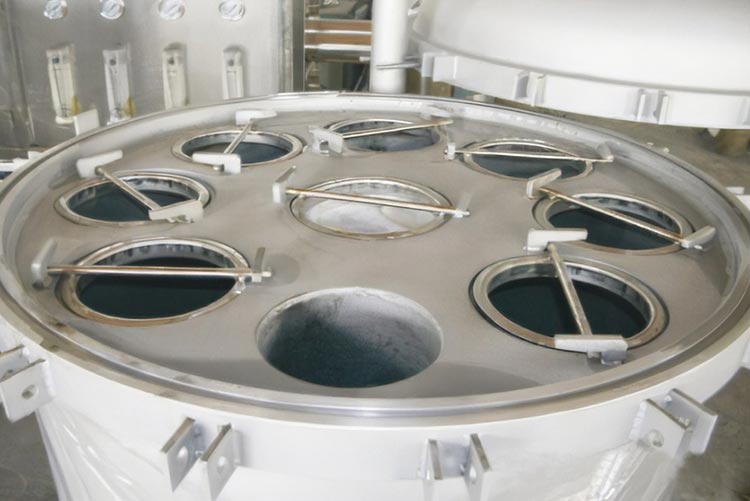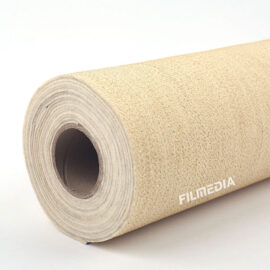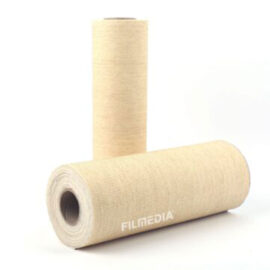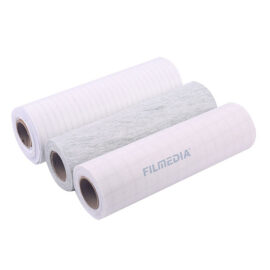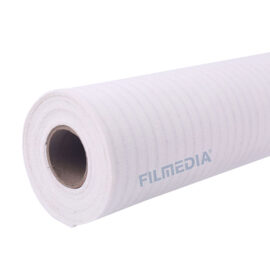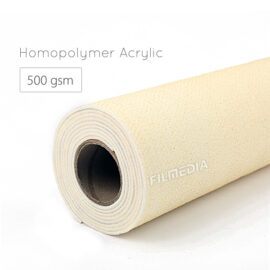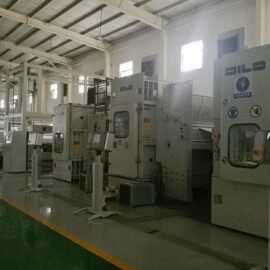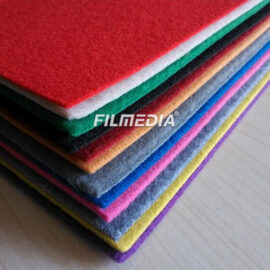- Material: PP Non woven fabric.
- Thickness: 2.0-3.8mm.
- Filtration accuracy: 0.2/1/5/10/25/50/100/150/200/300um.
- Color: White.
- Usage: Liquid Filter.
- Type: Non-woven Filter.
- Diameter & Length: Accept customization.
- Finish-treatment: Calendering, Heat setting, Singeing.
- Capacity: Capable of manufacturing standard PP needle felt 15,000 m²/day.
Learn More About Polypropylene Filter Bags
Description
PP(Polypropylene) needle punched felt is one of the most common materials used to make filter bags. Polypropylene filter needle felt is a specific type of needle felt commonly used in industrial filtration applications. It is a non-woven fabric made by mechanically needling polypropylene fibers, which has good filtration performance and durability. This type of needle felt is mainly used for the filtration and separation of solid particles, liquids or gases. Its production process is similar to the general needle felting production, but the material of choice is polypropylene fiber.
Features of polypropylene filter needle felt
- Chemical stability: It has strong chemical stability and can work in various chemical environments without being corroded.
- Abrasion resistance: Polypropylene fiber is relatively wear-resistant, so that the filter needle felt can maintain good performance in long-term use.
- Low water absorption: It has very low water absorption, so it maintains stable filtration performance even in wet conditions.
- Dimensional Stability: It is less sensitive to changes in temperature and humidity, which helps filter needle felt maintain stable dimensions and performance in various environments.
- Ease of Cleaning: Since it does not pick up contaminants easily, it is relatively easy to clean.
Physical and Chemical properties of Polypropylene Needle Felt
| Weight(gs/m) | 500 | |
| Thickness(mm) | 2~3.8 | |
| Width(mm) | ≤2.2 m | |
| Finish treatment | Singeing, Calendaring, Heat setting | |
| Air permeability(L/m2.s) | 150-200 | |
| Tensile strength(N/5 cm) | warp | ≥1700 |
| weft | ≥2200 | |
| Tensile elongation(%) | warp | ≤20 |
| weft | ≤30 | |
| Heat shrinkage(%) | warp | ≤1.5 |
| weft | ≤1.0 | |
| Temperature(°C/°F) | Continue | 90 /194 |
| Instant | 120 /248 | |
| Anti-acid | Excellent | |
| Anti-alkali | Excellent | |
| Anti-abrasion | Good | |
| hydrolysis stability | Excellent | |
Specifications of Polypropylene Needle Felt
| Para | Weight (g/sm) | Thickness (mm ) | Air Permeability (m3/m2/min) | Tensile Strength (N/5×20cm) | Tensile Elongation(%) | Operating Temp.(°C/℉) | Max Surge Temp.(°C/℉) | Suitable P.H. value | ||
| Model | / | / | / | Warp | Weft | Warp | Weft | / | / | / |
| PP-01 | 550 | 3.5 | 10 | 1000 | 1500 | 50 | 50 | 130/266(Dry Heat) | 150/302 (Dry Heat) | 1~12 |
| PP-05 | 400 | 2.5 | 20 | 500 | 1000 | 60 | 60 | 1~12 | ||
| PP-10 | 400 | 2.2 | 24 | 500 | 1000 | 80 | 80 | 1~12 | ||
| PP-25 | 400 | 3 | 35 | 500 | 1000 | 85 | 85 | 1~12 | ||
| PP-50 | 320 | 3.5 | 100 | 500 | 600 | 100 | 80 | 1~12 | ||
| PP-75 | 320 | 3.5 | 130 | 500 | 600 | 100 | 80 | 1~12 | ||
| PP-100 | 350 | 3.8 | 100 | 500 | 500 | 100 | 100 | 1~12 | ||
| PP-200 | 400 | 3.8 | 130 | 500 | 600 | 110 | 100 | 1~12 | ||
Polypropylene Needle Felt in Filmedia®
In addition to some of the advantages of ordinary needle-punched filter felts, the high-quality polypropylene needle-punched filter felt produced by Filmedia® has better acid and alkali resistance and lower softening point than polyester fiber. It is used in smoke and dust temperatures below 100°C and Areas with high acidity and alkalinity. Used in conjunction with plate and frame rolling filters, vacuum suction filters, bag filters, centrifugal filters and other liquid filtration and separation equipment.
Post-treatment
For PP/Polypropylene needle punched felt, we can treat it with different post-processing according to different working conditions. There are mainly the following post-processing treatments:
- PTFE Membrane.
- Water&Oil repellent.
Our Product Advantages
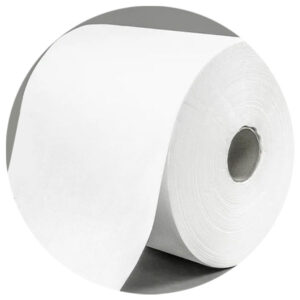 |
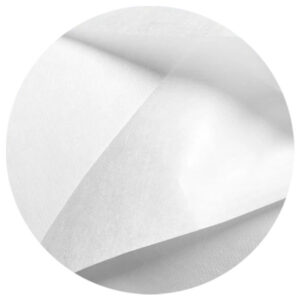 |
 |
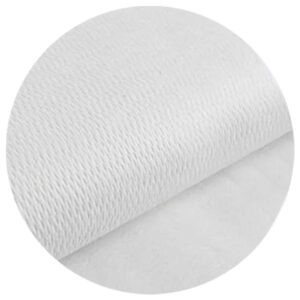 |
| The fiber is thin | The surface area is large | The filtration coefficient is large | The adsorption effect is better |
Applications
Polypropylene filter needle felt is widely used in gas and liquid filtration in industrial fields, including water treatment, chemical industry, food processing, pharmaceutical, mining and other industries. It can be used to filter particles, sediments, suspended solids, microorganisms, etc., to ensure cleanliness and safety in the production process.
